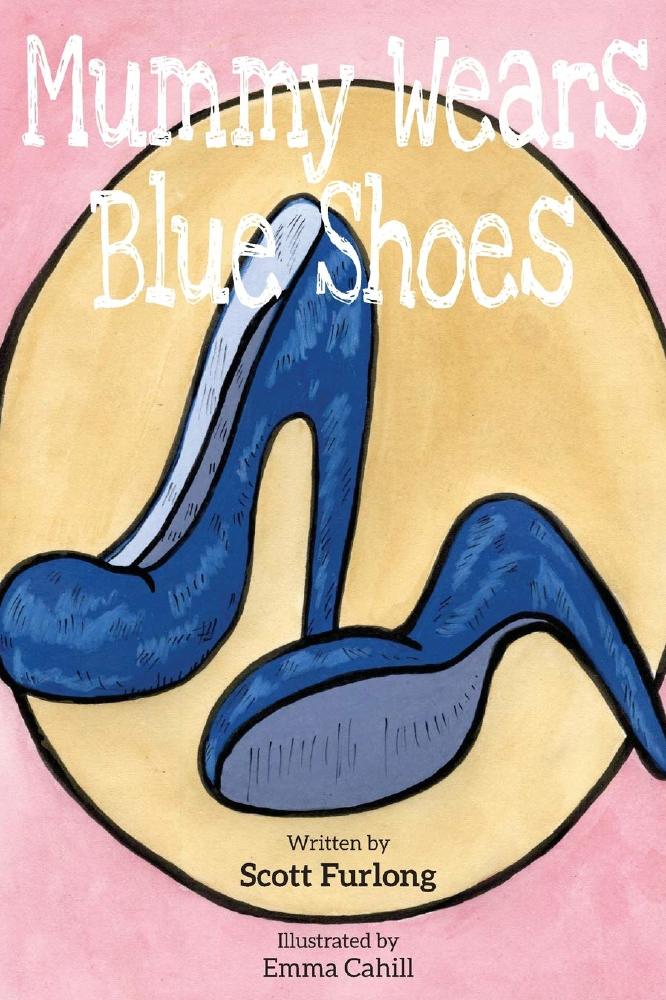Firstly, I must preface this with the fact I am not a psychologist, psychiatrist or health professional in any way. I am a husband, father, brother, son and uncle who lives with PTSD. From my experience, children are very perceptive and can pick up on even the most subtle of changes in family dynamic.

Mummy Wears Blue Shoes
I think it is fair to say that in my experience, children notice when a once energetic, engaging parent or family member suddenly changes behaviour, and essentially become a shell of who they once were. In the case of a parent for a child, the bedrock of hope and dependability, they are substituted with someone who, whilst they look like mummy or daddy, they are often vacant, explosive in temperament, tearful, scared, forgetful, and vulnerable. In the case of a family member, they can be no longer present in the child’s life.
Depending on the age of the child/children I think the effects of this can be profound. For example, in the circumstance of my son when my wife was experiencing her acute period of PTSD, my father only recently shared with me that he had been talking with my son and he told him that he can’t remember mum without PTSD. Then for him to see me go through PTSD meant his little world was turned upside down in and out once again. Along with being perceptive, I think it is fair to say children are very resilient if life is put in context for them, such as mummy or daddy or family member are unwell with an illness called Post Traumatic Stress Disorder, and this is what that can mean.
My wife and I decided to have ‘that’ conversation with our son, firstly when my wife experienced her acute period of PTSD, and then years later when I experienced my acute period of PTSD. A period of about ten years. On each occasion we sat on our couch just as Emily does with her family in Mummy Wears Blue Shoes and we spoke to him in a way he would understand and in a way that would not traumatise him.
You always worry about your children, and when I was in a literal battle of life and death with PTSD, I found it comforting that we were able, in some way, to protect our son by explaining to him what we were experiencing and give some context to the dramatic change in family dynamic.
Importantly for us, explaining what PTSD is and its effects meant we were able to monitor any behavioural change in our son, with the knowledge of what might be the impetus for that change. We include our son in the functioning of our family, I suspect like most families, so bringing them into the conversation, I think reaffirms to them they are loved and how they feel matters and that can include feeling happy. There is a section in Mummy Wears Blue Shoes, where Emily is with her grandparents and is eating ice-cream after enjoying her dancing lesson, when she remembers her mum is unwell at home and becomes sad. Emily’s grandmother reassures her that it is okay to be happy even though mum is unwell and this can help mummy to feel better. Children will continue to have developmental experiences as they grow and develop into young adults whilst navigating a new family normal. As hard as it can be at times, for us it was very important to ensure our son still experiences all that life as a child offers.
Particularly, one of the benefits we have experienced with speaking about mental health with our son is that he is quite self-aware and isn’t afraid to express how he is feeling. He is also able to pick up on cues when someone is having a bad day or wearing their blue shoes. I think being open with him has developed him into an empathetic young man. Whether this continues into is mid to late teens time will tell. Trust me he can still be a typical 14-year-old!
Whether our approach is right or not will be reflected in time, but a sensitive, honest approach to mental health seems to have worked for us. This may not be so for every family, so it is always important to seek advice from a mental health professional.
Mummy Wears Blue Shoes by Scott Furlong (published by Clink Street Publishing 15th September 2020 RRP £7.99 paperback £2.99 ebook) is available to purchase from online retailers including Amazon and to order from all good bookstores.

